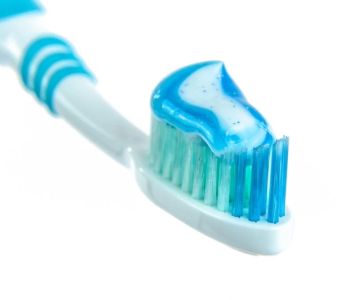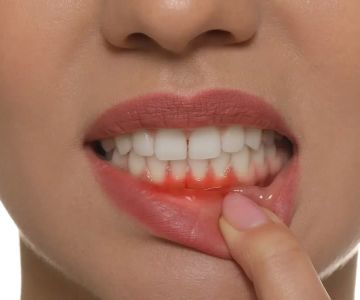Gum problems, such as gingivitis and periodontitis, are common oral health issues that many Americans face every day. While both conditions involve inflammation of the gums, gingivitis is a milder form that can escalate to periodontitis if left untreated. Understanding the various treatment options available can help prevent serious complications such as tooth loss or even systemic health issues. This article from Dentistry Toothtruth provides detailed insights into the effective treatment methods for these conditions.
Understanding Gingivitis and Its Treatment Options
The initial stage of gum disease, gingivitis, is characterized by red, swollen gums that may bleed easily during brushing or flossing. Proper oral hygiene is crucial in treating this condition. Regular brushing with fluoride toothpaste and daily flossing can significantly reduce plaque buildup, the main culprit behind gingivitis. In addition to personal dental care, professional cleanings performed by a hygienist at your dental office play an essential role in reversing gingivitis. A routine dental visit removes hardened plaque (tartar) that regular cleaning cannot eliminate. Special mouth rinses containing antimicrobial ingredients can also be recommended by dental professionals to reduce bacterial load and inflammation.
Advanced Solutions for Periodontitis
When gingivitis progresses to periodontitis, more intensive treatments become necessary. Patients might undergo scaling and root planing, a deep-cleaning procedure performed under local anesthesia. This treatment involves scraping away plaque and tartar from above and below the gum line and smoothing the tooth root surfaces to prevent bacterial recolonization. In some cases, dentists may employ antibiotic treatments locally at the affected sites or prescribe systemic antibiotics to combat infection. More advanced stages of periodontitis may require surgical interventions like flap surgery to clean the roots of a tooth and repair bone damage or grafting procedures to regenerate lost tissue and bone.
Innovative Approaches in Gum Disease Management
Recent advancements in dental treatment have introduced a variety of innovative approaches to managing gum disease effectively. Laser therapy, for instance, is gaining popularity as it offers a minimally invasive way to remove infected tissue and promote healing. The use of probiotics as a supplement to traditional treatment also shows promise in balancing the oral microbiome and enhancing gum health. Dentistry Toothtruth continually stays updated with such innovations to provide patients with cutting-edge care options, ensuring the best possible outcomes.
Emphasizing Preventive Care
Preventive care remains a cornerstone in the fight against gum disease. Regular dental check-ups allow for early detection and treatment, halting the progression of minor issues before they turn severe. Education on proper brushing and flossing techniques, coupled with dietary advice to reduce sugar intake, forms the basis of preventive strategies promoted by Dentistry Toothtruth. Habits such as quitting smoking significantly improve gum health and reduce the risk of periodontal disease. Patients are encouraged to discuss any concerns or symptoms with their dentist promptly to maintain optimal oral health.
Conclusion: Taking Action Against Gingivitis and Periodontitis
Understanding the treatment options available for gingivitis and periodontitis empowers individuals to take proactive steps toward maintaining healthy gums and teeth. From basic oral hygiene practices to more advanced medical and surgical interventions, there is a range of effective strategies suited to every stage of gum disease. Preventive care should never be underestimated, as it is the most effective deterrent against gum problems. At Dentistry Toothtruth, we are committed to providing personalized care plans tailored to each patient's needs, helping you achieve a healthy, confident smile. For anyone struggling with gum issues, take the first step by scheduling a consultation with your dental health provider today.







 A Tooth Fairy Dental4.0 (463 review)
A Tooth Fairy Dental4.0 (463 review) Robert Niles5.0 (2 review)
Robert Niles5.0 (2 review) Baldwin Park Family Dentistry4.0 (16 review)
Baldwin Park Family Dentistry4.0 (16 review) Northborough Dental Associates4.0 (261 review)
Northborough Dental Associates4.0 (261 review) Advanced Dentistry of Phoenixville4.0 (543 review)
Advanced Dentistry of Phoenixville4.0 (543 review) Main Street Dental Center City: Dr. Richard Eidelson4.0 (119 review)
Main Street Dental Center City: Dr. Richard Eidelson4.0 (119 review) The Importance of Oral Health Education During Pregnancy for a Healthy Pregnancy
The Importance of Oral Health Education During Pregnancy for a Healthy Pregnancy Best Tips for Brushing Your Teeth Properly for Healthy Gums: Essential Techniques for Oral Health
Best Tips for Brushing Your Teeth Properly for Healthy Gums: Essential Techniques for Oral Health Why Skipping Dental Checkups Can Lead to Bigger Oral Health Problems
Why Skipping Dental Checkups Can Lead to Bigger Oral Health Problems Advantages of Porcelain Dental Restorations
Advantages of Porcelain Dental Restorations How Can Diabetes Cause Tooth and Gum Problems? Preventing and Managing Oral Health Issues
How Can Diabetes Cause Tooth and Gum Problems? Preventing and Managing Oral Health Issues Healthy Habits for Promoting Good Oral Health and Hygiene: Tips for a Healthy Smile
Healthy Habits for Promoting Good Oral Health and Hygiene: Tips for a Healthy Smile